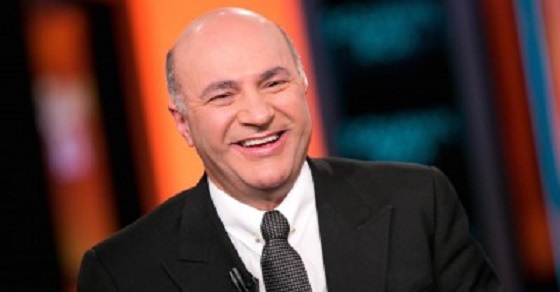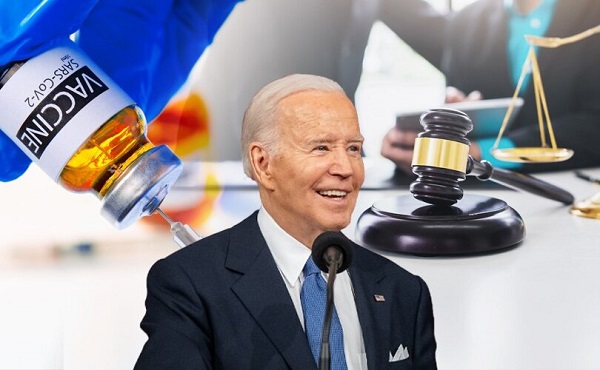Business
Indigo creates temporary website for browsing after cyberattack
By Tara Deschamps in Toronto
Indigo Books & Music Inc. has created a temporary website for its customers to browse for books and gifts after a cyberattack halted the company’s online operations last week.
In a notice posted to the new site Friday titled “shop in store, window-shop online,” the Toronto-based retailer said the temporary website only allows for browsing and it is still not possible to make Indigo purchases online.
The company did not offer a timeline for when its website or app, which is also unavailable, might return.
“We are working hard to provide the seamless online shopping experience that our customers have come to expect,” the note read.
“Please check back daily for updates and progress.”
The temporary website was launched more than a week after Indigo first notified customers of a “cybersecurity incident” that left it unable to process electronic payments, including through its website.
When the incident began Feb. 8, Indigo was only able to process purchases made in store with cash, but some of its services, including credit and debit payments and some return capabilities, have since been restored.
The company has said it immediately engaged third-party experts to investigate and resolve the matter, but has still not explained the nature of the incident or what caused it.
“Our investigation is under way but not yet complete,” it added Friday.
The incident has placed many of Indigo’s sales in jeopardy as customers must purchase items in brick-and-mortar stores and were only able to make purchases in cash for much of the outage. Though debit and credit cards are now accepted at stores, the overall impact on Indigo’s sales will be felt more deeply the longer the other problems persist.
Its investigation has so far not found any instances of customer credit or debit cards being compromised, but it has not completely ruled such a breach out.
“If at any point in the future we determine that personal data has been compromised, we commit to contacting those impacted directly,” Indigo wrote in its Friday note.
The company has also assured customers that points distributed through its Plum loyalty program have not been impacted, but redemptions, sign-ups, or renewals are not currently possible.
However, customers can still receive Plum discounts for purchases made in store while the incident is ongoing. Points will be issued at a future date as long as shoppers retain their receipts.
Plum points typically expire when a customer doesn’t make a qualifying purchase within 12 months. Shoppers with points set to expire in February, will see their expiration date extended to March 31, Indigo said.
The company has also extended the 30-day exchange or return timeline for purchases that had to be brought back between Feb. 8 and 15. Customers with such items will now have until Feb. 21 to make returns.
The retailer remains unable to cancel orders placed before the incident, but said once the issue is resolved, it will provide refunds. It is also unable to offer order status updates or estimated delivery timelines for people awaiting shipments from Indigo.
This report by The Canadian Press was first published Feb. 27, 2023.
Companies in this story: (TSX:IDG)
Business
Two major banks leave UN Net Zero Banking Alliance in two weeks

From The Center Square
Under Texas law, financial institutions that boycott the oil and natural gas industry are prohibited from entering into contracts with state governmental entities. State law also requires state entities to divest from financial companies that boycott the oil and natural gas industry by implementing ESG policies.
Not soon after the general election, and within two weeks of each other, two major financial institutions have left a United Nations Net Zero Banking Alliance (NZBA).
This is after they joined three years ago, pledging to require environmental social governance standards (ESG) across their platforms, products and systems.
According to the “bank-led and UN-convened” NZBA, global banks joined the alliance, pledging to align their lending, investment, and capital markets activities with a net-zero greenhouse gas emissions by 2050, NZBA explains.
Since April 2021, 145 banks in 44 countries with more than $73 trillion in assets have joined NZBA, tripling membership in three years.
“In April 2021 when NZBA launched, no bank had set a science-based sectoral 2030 target for its financed emissions using 1.5°C scenarios,” it says. “Today, over half of NZBA banks have set such targets.”
There are two less on the list.
Goldman Sachs was the first to withdraw from the alliance this month, ESG Today reported. Wells Fargo was the second, announcing its departure Friday.
The banks withdrew two years after 19 state attorneys general launched an investigation into them and four other institutions, Bank of America, Citigroup, JP Morgan Chase and Morgan Stanley, for alleged deceptive trade practices connected to ESG.
Four states led the investigation: Arizona, Kentucky, Missouri and Texas. Others involved include Arkansas, Indiana, Kansas, Louisiana, Mississippi, Montana, Nebraska, Oklahoma, Tennessee and Virginia. Five state investigations aren’t public for confidentiality reasons.
The investigation was the third launched by Texas AG Ken Paxton into deceptive trade practices connected to ESG, which he argues were designed to negatively impact the Texas oil and natural gas industry. The industry is the lifeblood of the Texas economy and major economic engine for the country and world, The Center Square has reported.
The Texas oil and natural gas industry accounts for nearly one-third of Texas’s GDP and funds more than 10% of the state’s budget.
It generates over 43% of the electricity in the U.S. and 51% in Texas, according to 2023 data from the Energy Information Administration.
It continues to break production records, emissions reduction records and job creation records, leading the nation in all three categories, The Center Square reported. Last year, the industry paid the largest amount in tax revenue in state history of more than $26.3 billion. This translated to $72 million a day to fund public schools, universities, roads, first responders and other services.
“The radical climate change movement has been waging an all-out war against American energy for years, and the last thing Americans need right now are corporate activists helping the left bankrupt our fossil fuel industry,” Paxton said in 2022 when launching Texas’ investigation. “If the largest banks in the world think they can get away with lying to consumers or taking any other illegal action designed to target a vital American industry like energy, they’re dead wrong. This investigation is just getting started, and we won’t stop until we get to the truth.”‘
Paxton praised Wells Fargo’s move to withdraw from “an anti-energy activist organization that requires its members to prioritize a radical climate agenda over consumer and investor interests.”
Under Texas law, financial institutions that boycott the oil and natural gas industry are prohibited from entering into contracts with state governmental entities. State law also requires state entities to divest from financial companies that boycott the oil and natural gas industry by implementing ESG policies. To date, 17 companies and 353 publicly traded investment funds are on Texas’ ESG divestment list.
After financial institutions withdraw from the NZBA, they are permitted to do business with Texas, Paxton said. He also urged other financial institutions to follow suit and “end ESG policies that are hostile to our critical oil and gas industries.”
Texas Comptroller Glenn Hegar has expressed skepticism about companies claiming to withdraw from ESG commitments noting there is often doublespeak in their announcements, The Center Square reported.
Notably, when leaving the alliance, a Goldman Sachs spokesperson said the company was still committed to the NZBA goals and has “the capabilities to achieve our goals and to support the sustainability objectives of our clients,” ESG Today reported. The company also said it was “very focused on the increasingly elevated sustainability standards and reporting requirements imposed by regulators around the world.”
“Goldman Sachs also confirmed that its goal to align its financing activities with net zero by 2050, and its interim sector-specific targets remained in place,” ESG Today reported.
Five Goldman Sachs funds are listed in Texas’ ESG divestment list.
The Comptroller’s office remains committed to “enforcing the laws of our state as passed by the Texas Legislature,” Hegar said. “Texas tax dollars should not be invested in a manner that undermines our state’s economy or threatens key Texas industries and jobs.”
Business
The CBC gets $1.4 billion per year, but the Trudeau government wants to give it more

From LifeSiteNews
A Heritage Committee report is recommending “that the Government of Canada provide a substantial and lasting increase in the parliamentary appropriation for CBC, allowing it to eliminate its paid subscription services and gradually end its reliance on commercial advertising revenues.”
The Liberal-run Heritage Committee is demanding millions more in funding for the Canadian Broadcasting Corporation despite the fact it already gets roughly $1.4 billon from the government annually.
According to information obtained and published December 16 by Blacklock’s Reporter, a Heritage Committee report is recommending “that the Government of Canada provide a substantial and lasting increase in the parliamentary appropriation for CBC, allowing it to eliminate its paid subscription services and gradually end its reliance on commercial advertising revenues.”
While the report did not suggest an amount, CBC CEO Catherine Tait previously testified that the outlet required funding in the “$400 million to $500 million range.”
While the report suggested throwing more taxpayer dollars at the failing outlet, Conservatives wrote a dissenting report, arguing the media platform should be defunded.
“The CBC cut hundreds of jobs while awarding lavish bonuses,” Conservative MP Kevin Waugh said, referencing CBC managers taking $14.9 million in bonuses this year while cutting 346 jobs.
“This disgraceful abuse of taxpayer dollars when Canadians are struggling for financial survival has contributed to the ‘defund the CBC’ movement,” he continued.
Waugh’s comments echo those of Canadian Taxpayer Federation Alberta director Kris Sims, who called on Parliament to abolish all taxpayer funding to the CBC, arguing that propping up the media outlet is not only a waste of money but also creates a conflict of interest for journalists.
Indeed, not only has the CBC’s network audience plummeted, but many have pointed out that the outlet has become nothing more than a mouthpiece for Prime Minister Justin Trudeau’s government.
“A free press means journalists free from government,” Sims explained. “A journalist who is paid by the government is in a direct conflict of interest. You cannot hold the powerful government to account when you’re counting on the powerful government for your paycheck.”
In seeming confirmation of Sims’ concerns, in October, Liberal Heritage Minister Pascale St-Onge’s department admitted that federally funded media outlets buy “social cohesion.”
Additionally, in September, House leader Karina Gould directed mainstream media reporters to “scrutinize” Conservative Party leader Pierre Poilievre, who has repeatedly condemned government-funded media as an arm of the Liberals.
Gould’s comments were in reference to Poilievre’s promise to defund the CBC if elected prime minister. Poilievre is a longtime critic of government-funded media, especially the CBC.
There have also been multiple instances of the CBC pushing what appears to be ideological content, including the creation of pro-LGBT material for kids, tacitly endorsing the gender mutilation of children, promoting euthanasia, and even seeming to justify the burning of mostly Catholic churches throughout the country.
Despite this, beginning in 2019, Parliament changed the Income Tax Act to give yearly rebates of 25 percent for each news employee in cabinet-approved media outlets earning up to $55,000 a year to a maximum of $13,750.
The Canadian Heritage Department since admitted that the payouts are not even sufficient to keep legacy media outlets running and recommended that the rebates be doubled to a maximum of $29,750 annually.
Last November, Trudeau again announced increased payouts for legacy media outlets that coincide with the leadup to the 2025 election. The subsidies are expected to cost taxpayers $129 million over the next five years.
Similarly, Trudeau’s 2024 budget earmarked $42 million in increased funding for the CBC in 2024-25.
-

 Alberta1 day ago
Alberta1 day agoProposed $70 billion AI data centre in MD of Greenview could launch an incredible new chapter for western Canadian energy
-

 Brownstone Institute10 hours ago
Brownstone Institute10 hours agoA Potpourri of the World’s Unexposed Scandals
-

 Alberta1 day ago
Alberta1 day agoYour towing rights! AMA unveils measures to help fight predatory towing
-

 Economy8 hours ago
Economy8 hours agoThe White Pill: Big Government Can Be Defeated (Just Ask the Soviet Union)
-

 conflict7 hours ago
conflict7 hours agoTrump has started negotiations to end the war in Ukraine
-

 COVID-196 hours ago
COVID-196 hours agoEsteemed UK Doctor pleads with governments to cancel COVID-19 vaccines
-

 Business5 hours ago
Business5 hours agoThe CBC gets $1.4 billion per year, but the Trudeau government wants to give it more
-

 COVID-1911 hours ago
COVID-1911 hours agoBiden HHS extends immunity for COVID shot manufacturers through 2029




